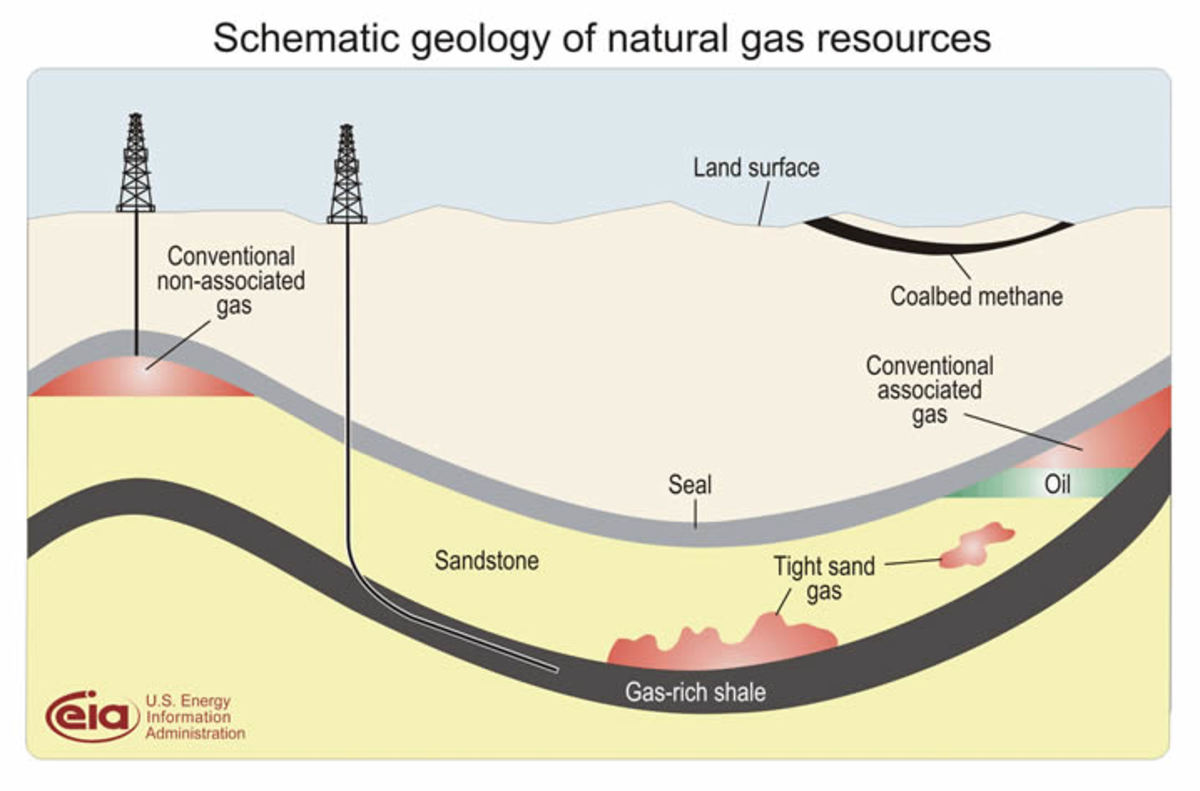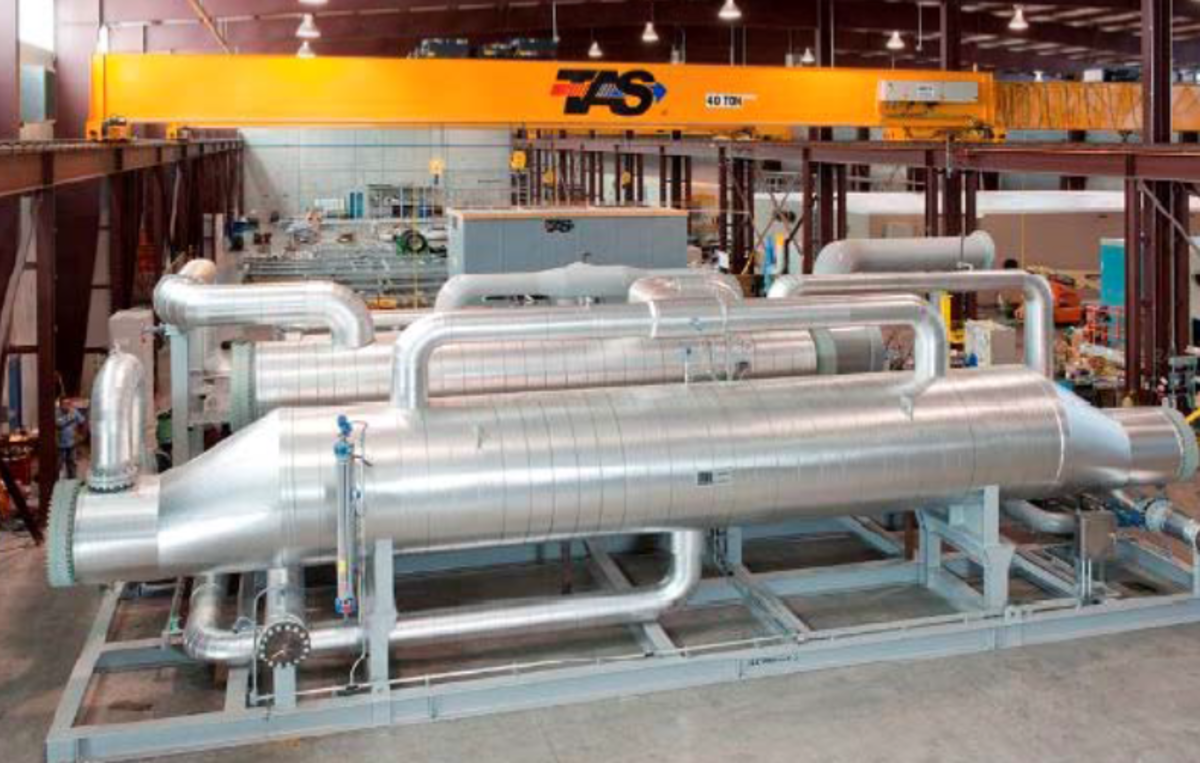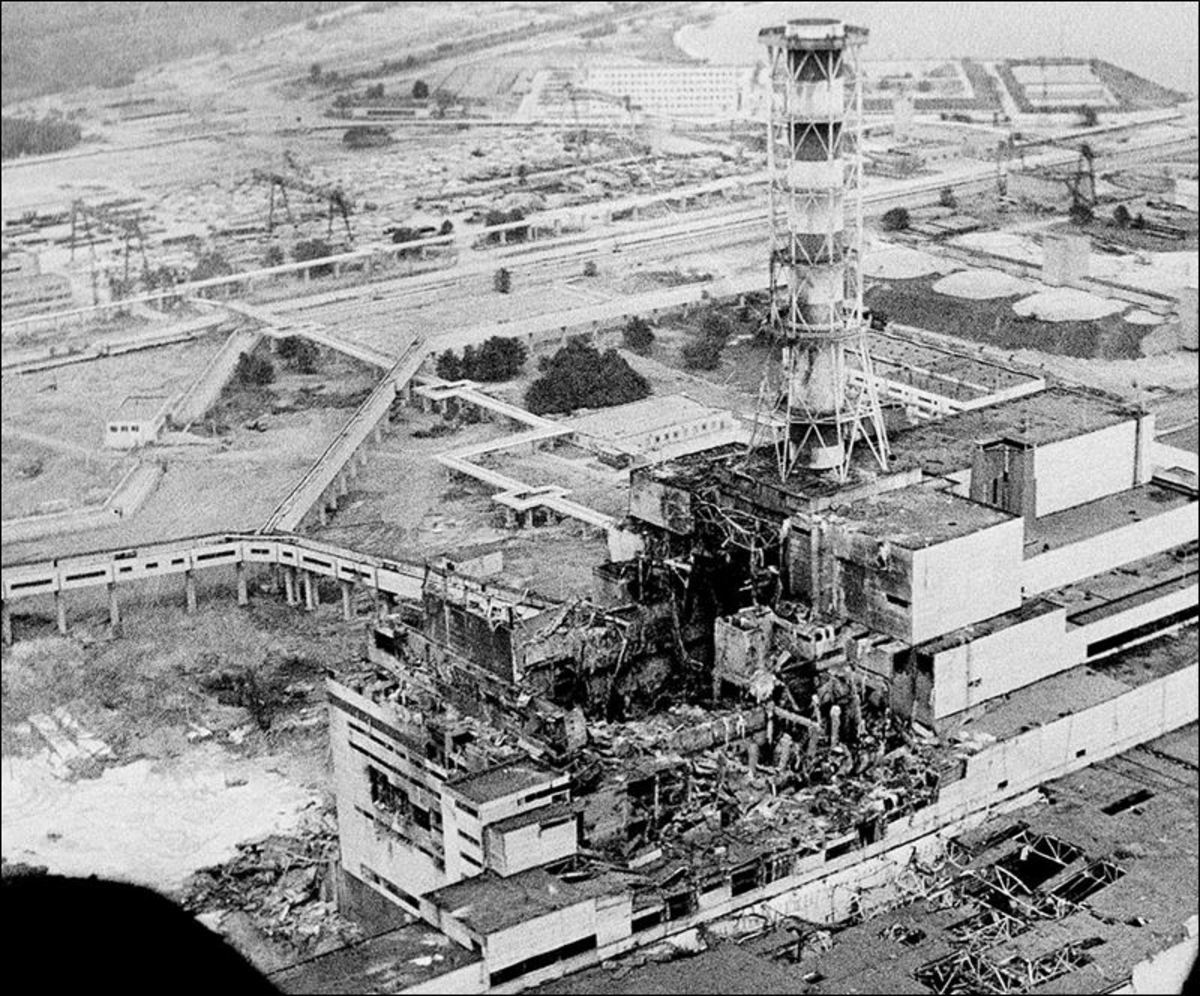From OPEC to OGEC: Natural Gas Cartel just around the corner

Formation of an OGEC (Oil and gas exporting countries) Cartel
Will an OGEC cartel soon form in the world market like OPEC? Although this question does not have a definitive answer, there are statistical facts that can help in finding the answer. OPEC controls and an OGEC would hypothetically control large sources of the world’s energy, with OPEC and OGEC dealing with oil and natural gas, respectively. Most of the world is dependent on oil; thus, a drastic price change would seriously alter the world market. As long as oil is being produced, the formation of an OGEC cartel is not likely because a drastic price change in natural gas would cause people to revert to oil, which is an easier resource to deal with anyway.
Before determining whether or not an OGEC cartel is possible, we need to look at the reason why OPEC was created. OPEC, otherwise known as the Organization of the Petroleum Exporting Countries, was formed in Baghdad, Iraq, in September, 1960, with the cooperation of 12 countries: Algeria, Angola, Equador, Islamic Republic of Iran, Iraq, Kuwait, Socialist People’s Libyan Arab Jamahiriya, Nigeria, Qatar, Saudi Arabia, United Arab Emirates, and Venezuela (OPEC Long Term Strategy 5).
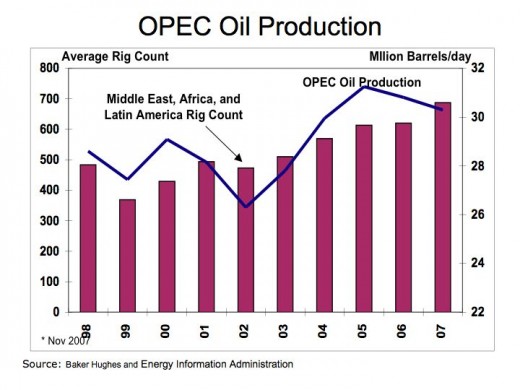
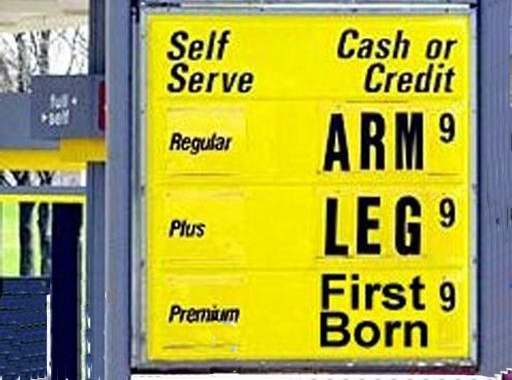
More Interesting Reads
OPEC was essentially formed to limit the oil production and exportation of it’s member countries so that each producer would benefit economically from it. It also ensured that everyone investing in the supply of petroleum would have a fair return on capital to those investing in it. The main benefit of its creation in 1960 to the members is the fact that the member countries can sell less oil for more money in order to maintain market stability.
The characteristics of oil have made it a leading energy source. Unlike natural gas, it is easy and relatively cheap to store, transport, and use. Natural gas is much harder to store and ship because it has a lower density when not liquified, and it also requires a great deal of energy to liquify natural gas. Oil is the leading resource because it is easy to produce and consume, and because of this, fluctuations in price can seriously affect the world economy. This is because countries are dependent on gas in order to operate. On the other hand, natural gas requires much more effort to get from the ground to a consumable area, thus keeping it from surpassing gasoline.
An OGEC would consist of the major natural gas exporting countries and would have principles similar to OPEC. In fact, there is already an organizational group of natural gas countries in place. It is the GECF, otherwise known as the Gas Exporting Countries Forum, but it does not currently set quotas or prices like OPEC does. They were created in 2001, and the participating countries are Algeria, Bolivia, Egypt, Equatorial Guinea, Iran, Libya, Nigeria, Qatar, Russia, Trinidad, and Tobago and Venezuela (About Us 1). If a gas cartel would form, it would be either through GECF or the countries involved. In fact, 70% of the natural gas reserves as well as 85% of the LNG production is controlled by the countries in this group (About Us 1).
International Natural Gas Pipelines
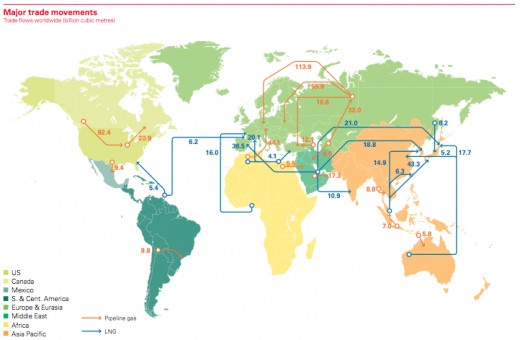
Current Natural Gas Interstate Pipelines
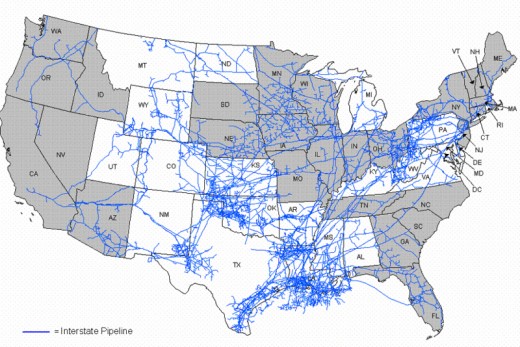
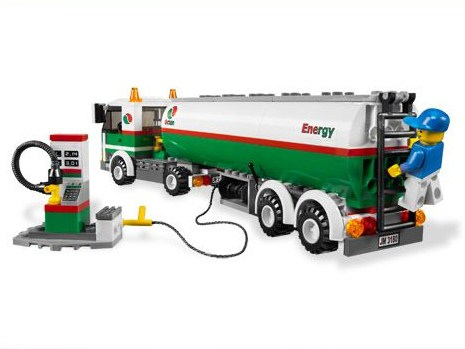
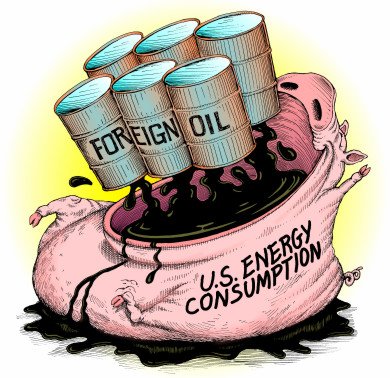
The GECF could potentially turn into a cartel, but it would very different than OPEC in a few key elements, one of which being the different characteristics of oil and natural gas. For starters, gasoline is much easier to transport because of it’s varied methods. It can be transported through pipelines, trucks, and trains over land, and in barges or tankers over water (Oil Transportation 1). This gives much more flexibility to the oil exporters because they can choose the most cost effective method of transportation, which heightens the desire for profitability.
Natural gas, on the other hand, requires a much more elaborate transportation system, which is mainly through pipelines. Along with these extensive pipelines, it is obligatory to have compressor stations, metering stations, and control stations to ensure that it gets from point A to point B safely (The Transportation of Natural Gas 1).
Even though the demand for natural gas is not as high as oil, these pre-requisites to consuming natural gas imply that the consuming countries will have to develop the infrastructure for natural gas before the cartel can really be effective. This means that it will take a long time before an OGEC can occur. The BP Statistical Review of 2011 shows a chart of the natural gas pipelines throughout the world, but it is still not as mobile as gasoline is (Dudley 19).
Linked to this topic are the two different wells that natural gas comes from. Associated gas exists either dissolved in the crude oil or separate from it, whereas non-associated gas is found in gas wells independent of crude oil (Processing Natural Gas 1). By the time an OGEC has the potential to form, most sources of natural gas will come from non-associated wells because oil reserves are estimated to deplete by the mid-to-late 2030s. For the most part, the formation of a OGEC is a long term potential.
Prices of Natural Gas over the past 20 yrs
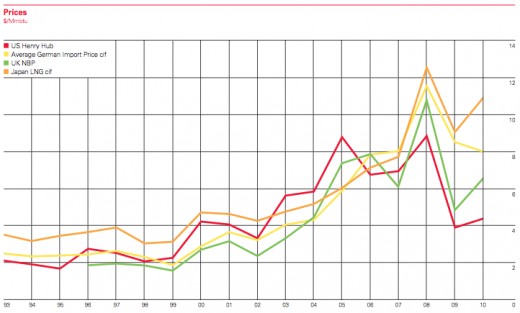
Despite everything though, one major factor contributing to the OGEC formation still lingers on, and that is profit. The BP Statistical Review of 2011 reveals that the price of natural gas per million Btu in the was 3.69 in Canada, 4.39 in the US, 6.56 in the UK, and 8.01 in Germany, whereas the cost in US dollars per million Btu of LNG in Japan was a staggering 10.91 (Dudley 27). If it only takes 2 or 3 to transform natural gas into liquid form and in Japan, then there is a huge profit margin to be obtained. The profit all depends on who can develop the most cost efficient method for transforming natural gas into its liquid state as well as transporting it.
An OGEC is unlikely in the near future because of the requirements for importing and exporting natural gas, but if the gap between production costs continues to increase, then an OGEC similar to the GECF would form in order to maintain price stability. If nothing is done and the gap continues to increase, the large producers could develop a monopoly and by undercutting everyone else. Nonetheless, a natural gas cartel will not form in the next twenty years because oil is still the dominant form of energy. Oil is much more convenient and easier to deal with than natural gas, and a cartel will not form because oil is still much easier to handle.
Sources
"About Us." GECF. Gas Exporting Countries Forum. Web. 25 Mar. 2012. <http://www.gecf.org>.
Dudley, Bob. "BP Statistical Review of World Energy June 2011." BP.com. Web. 25 Mar. 2012. <http://www.bp.com/assets/bp_internet/globalbp/globalbp_uk_english/reports_and_publications/statistical_energy_review_2011/STAGING/local_assets/pdf/statistical_review_of_world_energy_full_report_2011.pdf>.
"Oil Transportation." PetroStrategies, Inc. Web. 25 Mar. 2012. <http://www.petrostrategies.org/Learning_Center/oil_transportation.htm>.
"OPEC Long Term Strategy." Organization of the Petroleum Exporting Countries. OPEC Secretariat, 2010. Web. <www.opec.org>.
"Processing Natural Gas." NaturalGas.org. Web. 25 Mar. 2012. <http://www.naturalgas.org/naturalgas/processing_ng.asp>.
"The Transportation of Natural Gas." NaturalGas.org. Web. 25 Mar. 2012. <http://www.naturalgas.org/naturalgas/transport.asp>.
Before you go!
If you liked this writing, please rate it up, comment, or share it with someone who you think would enjoy it. Also, feel free to check out any of my other articles! Have a GREAT day!

